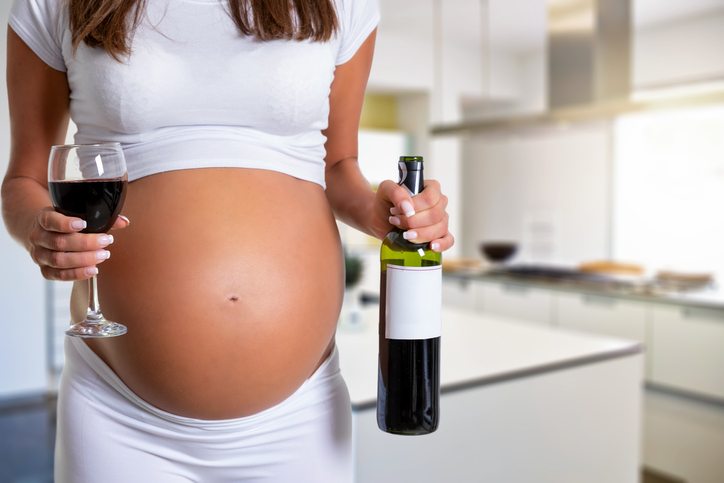Drinking During Pregnancy May Cause A Depressed Child In Late Adolescence

Reality TV star Alex McCord of The Real Housewives of New York City admitted in a book she wrote that she drank alcohol during pregnancy.
"Throughout my pregnancy, I gave into every craving I felt," she wrote, according to one report.
"When I wanted to have a drink, I did."
I don’t think McCord was suggesting that she had a drinking problem or got blackout drunk while she was pregnant. There are varying opinions out there on whether it is safe or not to consume a little bit of alcohol here or there during pregnancy.
“While not drinking any alcohol during pregnancy is the safest choice, small amounts of alcohol early in pregnancy may be less risky to the mother’s health and the health of their babies than previously believed,” according to an article from Harvard Health that discusses a study published in the journal Obstetrics and Gynecology.

“Minimal alcohol use during the first trimester doesn’t appear to increase the risk for high blood pressure complications, or premature birth or low birth weights.”
But according to the Centers for Disease Control and Prevention, the fact remains that drinking while pregnant may cause fetal alcohol spectrum disorders (FASDs).
“There is no known safe amount of alcohol during pregnancy or when trying to get pregnant. There is also no safe time to drink during pregnancy. Alcohol can cause problems for a developing baby throughout pregnancy, including before a woman knows she’s pregnant. All types of alcohol are equally harmful, including all wines and beer,” reports the CDC.
And now, a recent study found evidence which suggests that pregnant women who drink are at an increased risk of having children who will suffer from depression in late adolescence.
The study used data from more than 14,500 pregnant women in the 1990s. The researchers wanted to see if the frequency mothers and their partners consumed alcohol during pregnancy was related to having children who suffered from depression at the age of 18.
Out of the 14,541 pregnant women that were studied, 4,191 of the women had consumed alcohol between 18 and 32 weeks of their pregnancy as well as had children that were diagnosed with depression at the age of 18.
“The study found that children whose mothers consumed alcohol at 18 weeks pregnant may have up to a 17 percent higher risk of depression at age 18 compared to those mothers who did not drink alcohol,” according to one report discussing the study.
“However, there was little evidence of any association between partner drinking and offspring depression in adolescence.”
I think what we can gather from this is that it is best to completely abstain from alcohol during pregnancy. IWomen are usually advised to abstain from drinking or drink very little if they are trying to conceive. But there is research which suggests that both aspiring parents should avoid drinking alcohol prior to conception in order to help protect the baby from congenital heart defects.
Some medical professionals even recommend giving up drinking a year prior to conception. And it is not just the mother who is carrying the baby who is responsible. Sperm quality matters just as much, which is influenced by diet and other factors that constitute a healthy or unhealthy lifestyle.
Honestly, alcohol really doesn’t provide many benefits in my opinion. You may have heard that red wine in moderation, for example, may be good for the heart. However, the American Heart Association “...does not recommend drinking wine or any other form of alcohol to gain potential health benefits.”
Note too that drinking excessively or regularly may deplete the body of essential vitamins and minerals and may negatively impact immune function. Alcohol consumption in general has also been linked to the development of depression and anxiety.
If you are pregnant or planning to be, focus on the things you know will definitely benefit your growing baby (alcohol is not one of them).
Make sure you are eating healthily and getting adequate amounts of essential nutrients such as magnesium, folate and vitamin D. It is also important to maintain a healthy weight. Pregnant women are not “eating for two.”
For more tips on how you can help have a healthy pregnancy, check out these pH Labs blogs.
Enjoy your healthy life!
The pH professional health care team includes recognized experts from a variety of health care and related disciplines, including physicians, attorneys, nutritionists, nurses and certified fitness instructors. This team also includes the members of the pH Medical Advisory Board, which constantly monitors all pH programs, products and services. To learn more about the pH Medical Advisory Board, click here.







